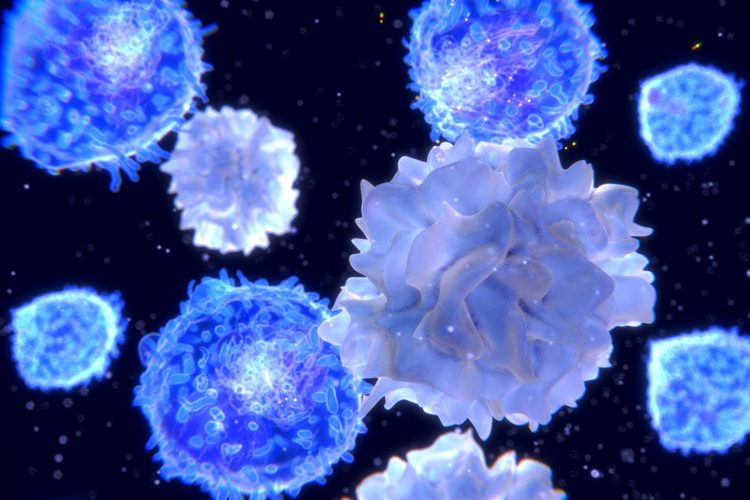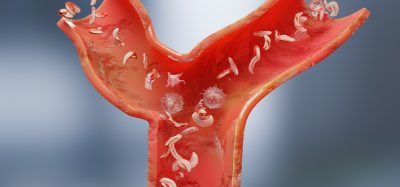New therapeutic concept controls pathogenic T-cells relevant in MS
Posted: 14 January 2019 | Dr Zara Kassam (Drug Target Review) | No comments yet
Researchers have identified an innovative and promising therapeutic option to treat multiple sclerosis…


Researchers have identified an innovative and promising therapeutic option to treat multiple sclerosis. They discovered that the protein prohibitin occurs in high concentrations on the surface of certain T-cells in MS patients and that its presence is associated with stimulation of the member of the mitogen-activated protein kinase (MAPK) pathway called CRAF. The researchers were able to show in a model that the interaction between prohibitin and CRAF could be interrupted by a polysaccharide vaccine, blocking the Th17 production in pathogenic Th17 cells and promoting the proliferation of anti-inflammatory regulatory T-cells. In this experimental model of MS, this led to alleviation of the severity of the condition.
In an experimental model of MS, the team led by Professor Frauke Zipp and Professor Krishnaraj Rajalingam of the Mainz University Medical Center found that there was significant upregulation of the proteins prohibitin 1 and 2 on the surfaces of interleukin-17 (IL-17) producing Th17 cells, a subpopulation of T-cells. IL-17 is a protein secreted by a unique population of immune cells. “The increased surface expression of prohibitin 1 and 2 was associated with a similarly elevated activity of the MAP kinase CRAF and downstream MAP-kinase signal transduction. We were not only able to observe this in healthy individuals but also in Th17 cells of patients suffering from MS,” Professor Frauke Zipp, Director of the Department of Neurology at the Mainz University Medical Center, pointed out. MAP kinases are activated by growth factors. They initiate a multi-stage signalling cascade, which, as a signalling pathway, regulates fundamental biological processes such as cell growth. In many cancer-related disorders, components of this signalling pathway are modified, which, among other things, can promote a greater proliferation of tumour cells.
Based on these findings, the Prof Mainz-based team hoped to discover whether and, if so, how the interaction between prohibitin and CRAF might not only be interrupted but also prevented. One approach they employed in their study was to test Vi polysaccharide, a vaccine approved by the World Health Organization (WHO) for the treatment of typhoid. This vaccine blocks the interaction between CRAF and prohibitin and thus represents a new type of kinase inhibitor. It was found that this vaccine significantly inhibits CRAF activity in treated cells. “Further investigations using this disease model allowed us to show that the number of anti-inflammatory regulatory T-cells increased and, as a result, the severity of MS was significantly alleviated,” explained cell biologist Professor Krishnaraj Rajalingam, head of the Cell Biology Unit at the Mainz University Medical Center. “Developing novel kinase inhibitors that target protein-protein interactions are of special interest especially in treating immune disorders. Our next goal is to apply these findings to other autoimmune diseases such as rheumatoid arthritis,” added Rajalingam, who is also a Heisenberg Professor of Cell Biology and a Fellow of the JGU Gutenberg Research College.
The speaker and coordinator of the Research Center for Immunotherapy (FZI), Professor Tobias Bopp, also considers the new approach to be promising, especially as active substances that can inhibit kinases are already being used to treat patients. “Targeted treatment of a tumour and autoimmune diseases with kinase inhibitors is a promising approach that is already being employed in a clinical setting.”
The team has published their findings in The EMBO Journal.
Related topics
Disease Research, T cells, Target Molecule
Related conditions
Multiple Sclerosis
Related organisations
German Research Foundation (DFG), Mainz University Medical Center, Medical Center of Johannes Gutenberg University Mainz (JGU)
Related people
Professor Frauke Zipp, Professor Krishnaraj Rajalingam







